The point of making predictions is not to be right but to understand reality so well that you can make an educated guess about where it goes and learn something in the process.
I also enjoy the discussion I have based on sharing my predictions. They always make me smarter. So, please share your opinions in the comments.
Previous predictions: 2018 | 2019 | 2020 | 2021 | 2022 | 2023
2024 Predictions Review
2024 was a big breakthrough year:
- AI Overviews: from search results to AI answers.
- Starlink: from broadband to satellite internet.
- SpaceX: From Earth to space.
- o1 and Gemini 2.0 Flash: from LLMs to reasoning.
- Waymo: from ride-hailing to self-driving.
- Meta Ray Bans: from smartwatches to smart glasses.
- YouTube: from text to video.
I made eight predictions for this year:
A Wave Of AI Improvements
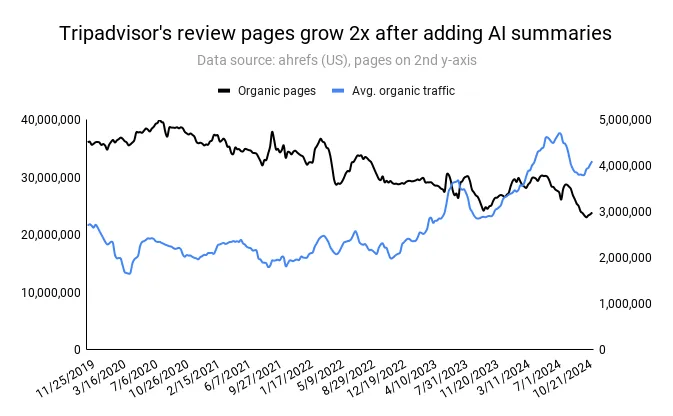 Image Credit: Kevin Indig
Image Credit: Kevin IndigI expected concrete features and feature improvements from AI – and I got it right. A lot of big sites shipped better experiences thanks to AI: Tripadvisor, Booking, Expedia, Trip.com, Nextdoor, Ebay, Amazon, and more. As I highlighted in my latest Travel deep dive, we’ve seen the first real results from AI Features: TripAdvisors review pages doubled in organic traffic after adding AI-generated review summaries.
The bigger picture: AI trickles through all aspects of Product. The key to monetization is making it useful – not just cool. And 2024 is the year we’ve seen the first prototypes, like natural language search or AI reviews.
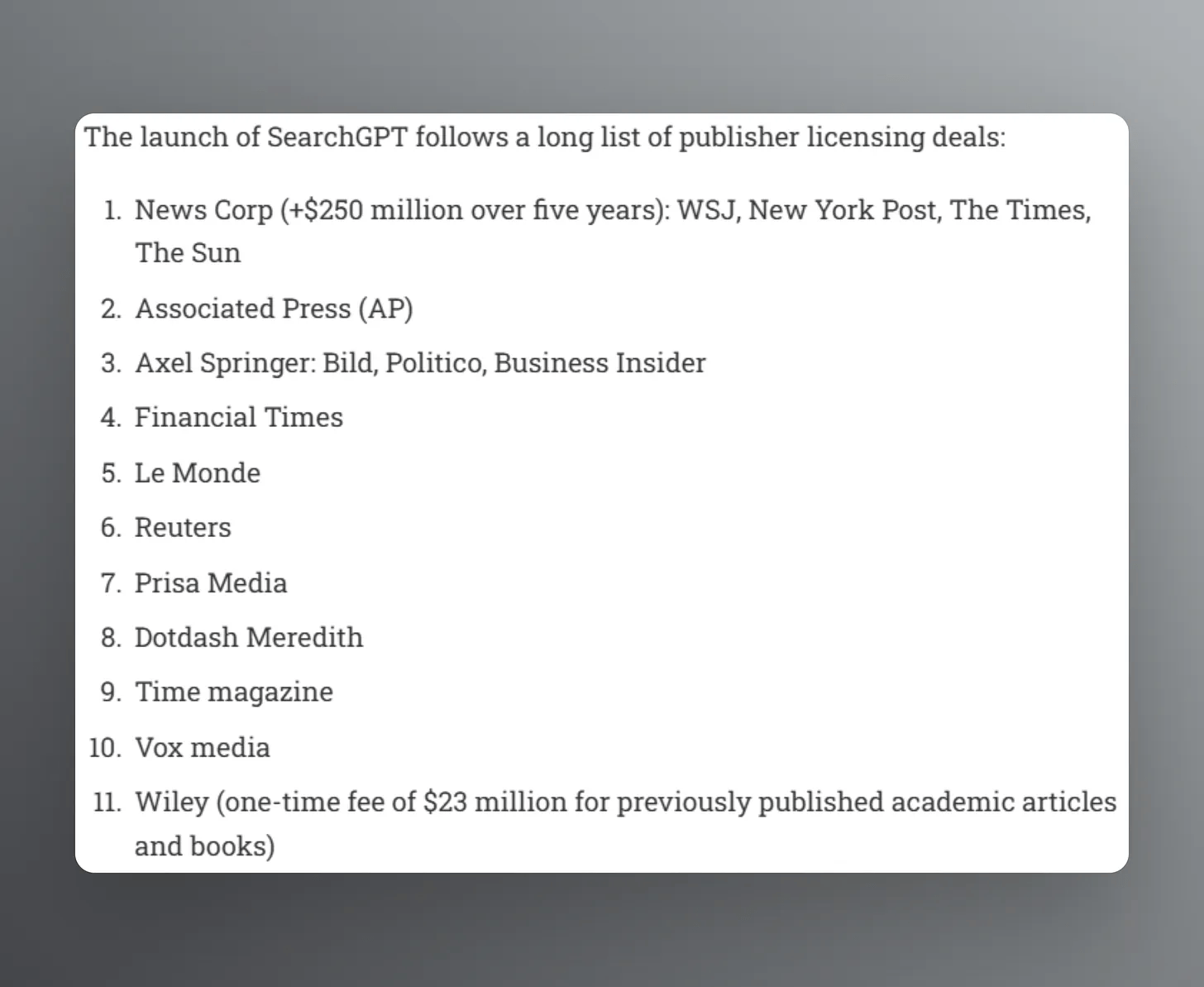 Image Credit: Kevin Indig
Image Credit: Kevin IndigI found 11 publisher deals with LLM developers in 2024, as the traditional media landscape has continued to atrophy:
- News is a commodity unless you break it first, leading to a dogfight between publishers in the digital world.
- Trust in traditional media is crumbling, reducing readership, especially among younger generations.
- Google has slashed affiliate revenue streams with its site reputation abuse penalties, taking away the last lucrative income stream for many publishers.
Licensing might not turn publishing into a flaming hot industry again, but it throws a lifeline to starving companies.
Boost your skills with Growth Memo’s weekly expert insights. Subscribe for Free!
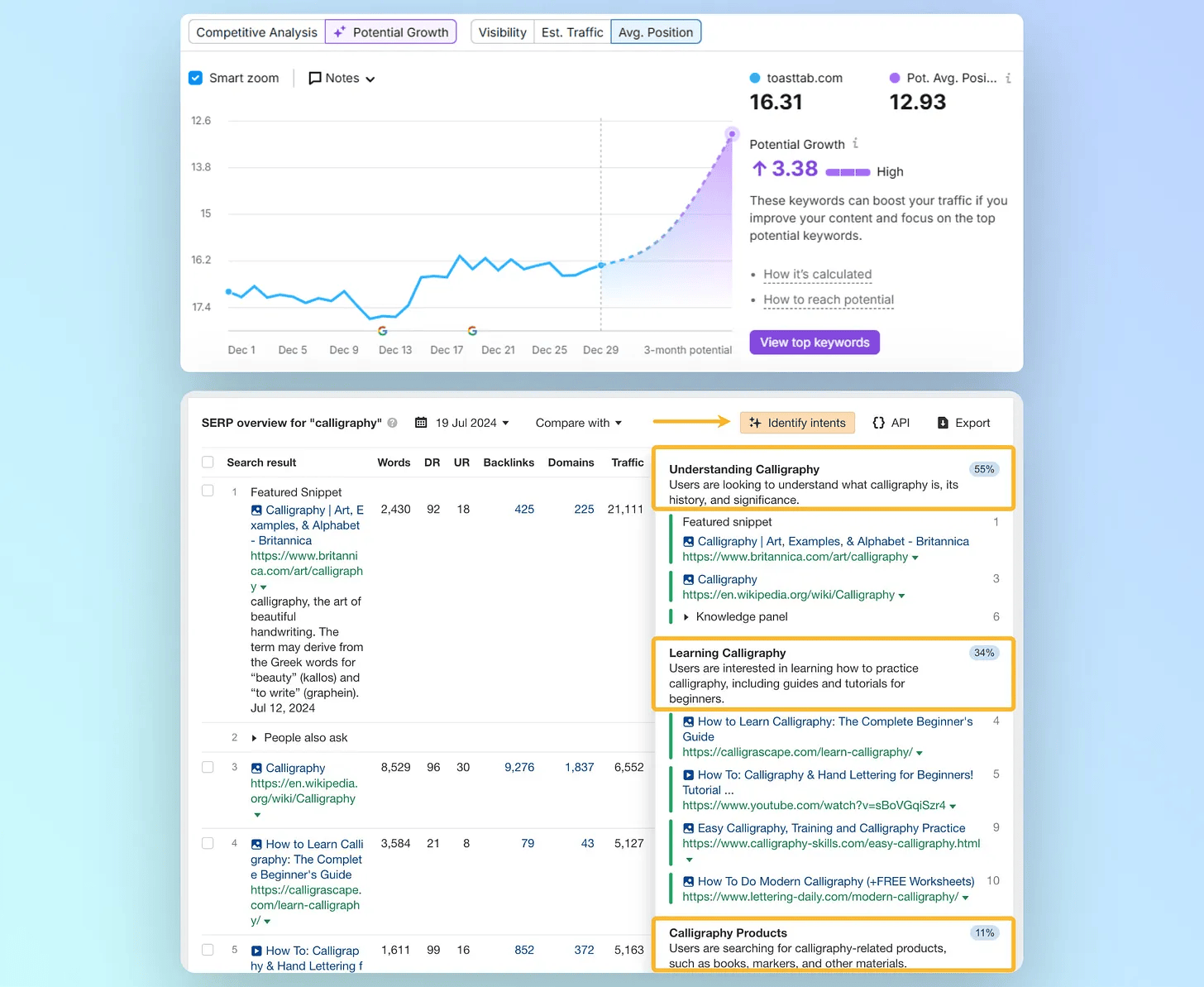
In 2024, the major SEO tool vendors added multiple AI features to their platforms:
Semrush (source):
- Demand forecast.
- Personal Keyword Difficulty.
- Keyword Strategy Builder.
Ahrefs (source)
- AI Keyword Suggestions.
- AI Search Intent.
- AI Content Helper.
- AI Translations.
AI doesn’t just transform the search experience but the tools SEOs use every day.
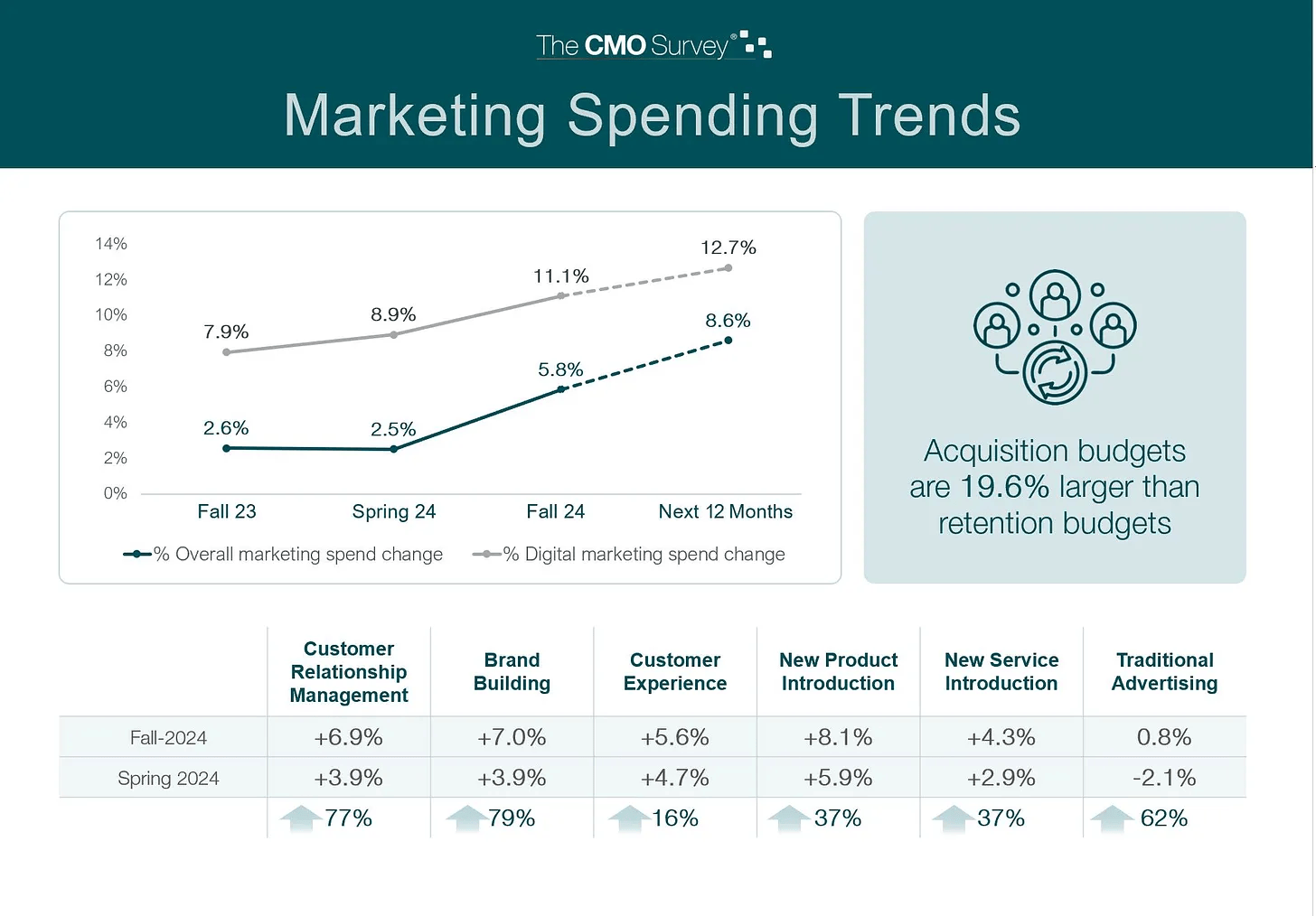 Image Credit: Kevin Indig
Image Credit: Kevin IndigIn 2024, I expected many companies to focus more on organic growth channels like SEO, content marketing, social, podcasting and email nurturing. And indeed, marketing budgets have accelerated their decline after the pandemic from 11% in 2020 to 7.7% in 2024 of total revenue, leaving less room for advertising.
In November 2024, the CMO survey found that advertising sees the lowest spend growth while brand building and product marketing gains the most.
👎🏻 Google/Microsoft Build Powerful AI Agents Based On Your Emails
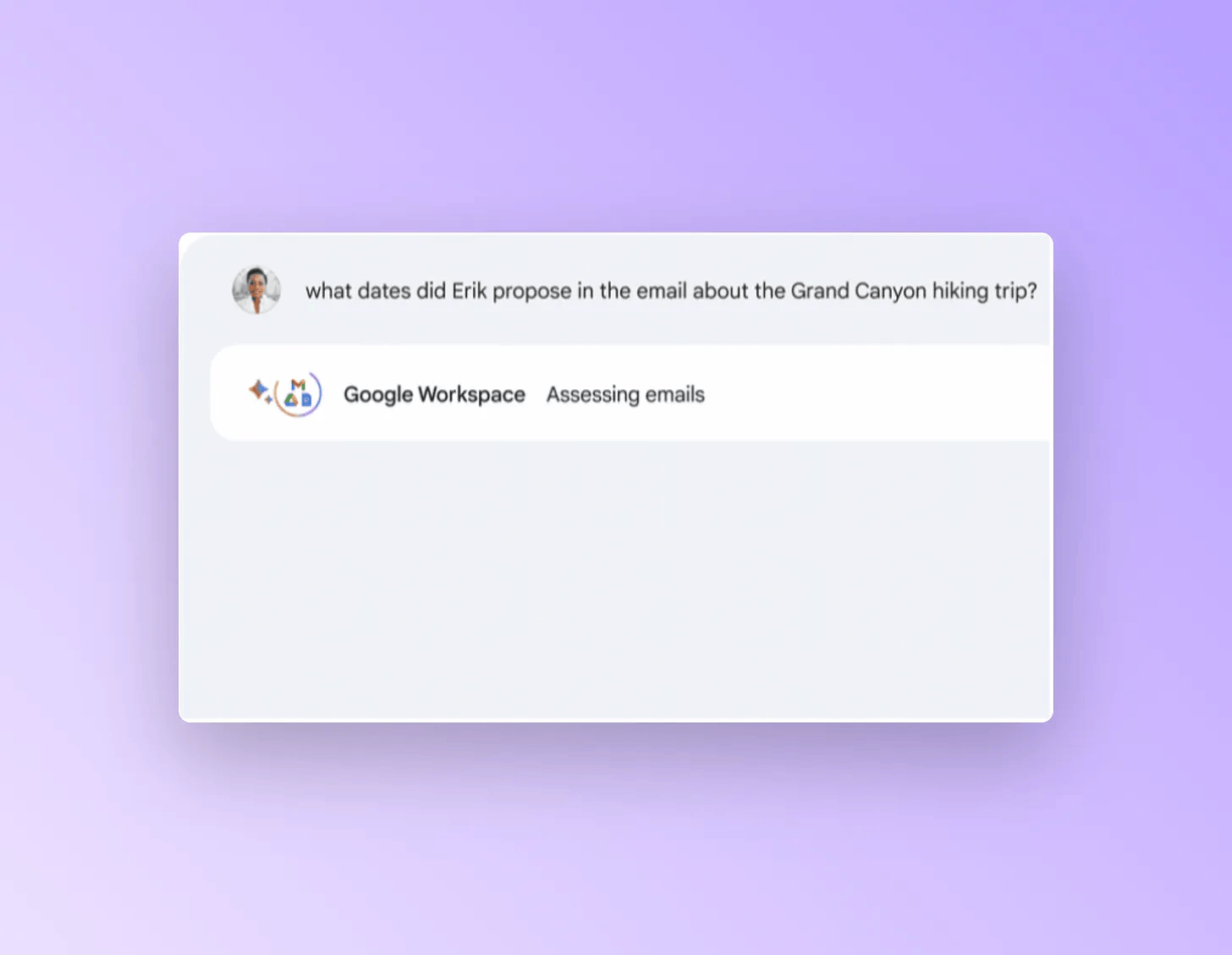 Image Credit: Kevin Indig
Image Credit: Kevin IndigIn September 2023, Google’s Bard got access to Gmail. I tried it out, and it was terrible. Hallucinations left and right.
Google sits on a treasure trove of data as it owns Android, YouTube, Gmail, Maps and is one of the two most used one-tap authentication solutions next to Apple. Microsoft has Outlook, GitHub, Linkedin, Edge, Skype and more.
None of the two companies – or any company, for that matter – are able to successfully integrate their user data with powerful AI agents. I have high hopes for 2025, though.
👎🏻 Google Continues To Prioritize Human Content And Launches An Update To The Hidden Gems Algorithm
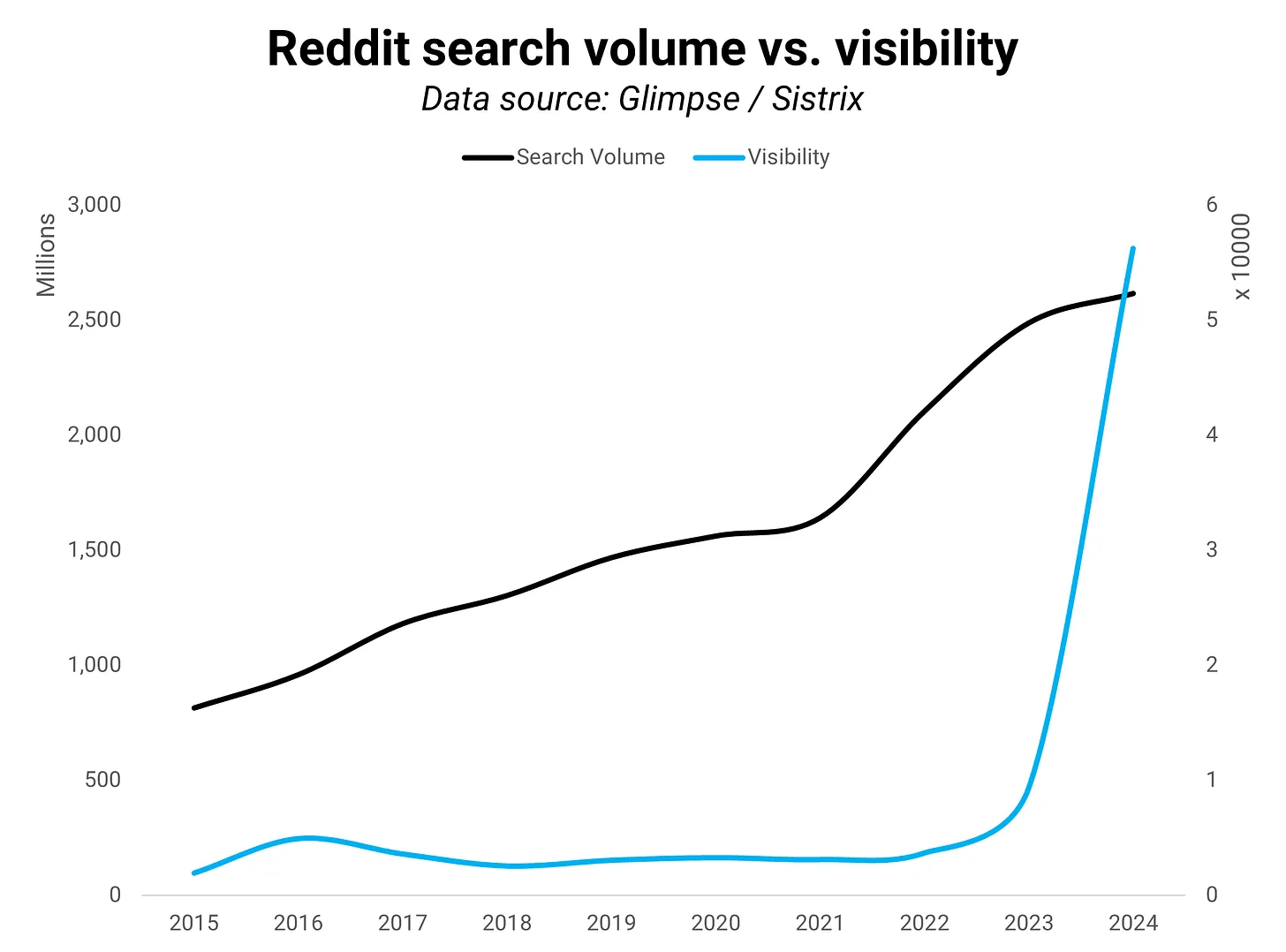 Image Credit: Kevin Indig
Image Credit: Kevin IndigGoogle has continued to prioritize human content in the search results by giving forum content a boost, but I haven’t noticed the improvement I expected in 2024.
My expectation was that Google could use the Reddit API to prioritize threads based on age, upvotes and Karma of contributors. That hasn’t happened. We’re still seeing questionable forum content in the search results.
👎🏻 Google Doesn’t Launch SGE Unless Someone Else Launches A Powerful AI Search Engine
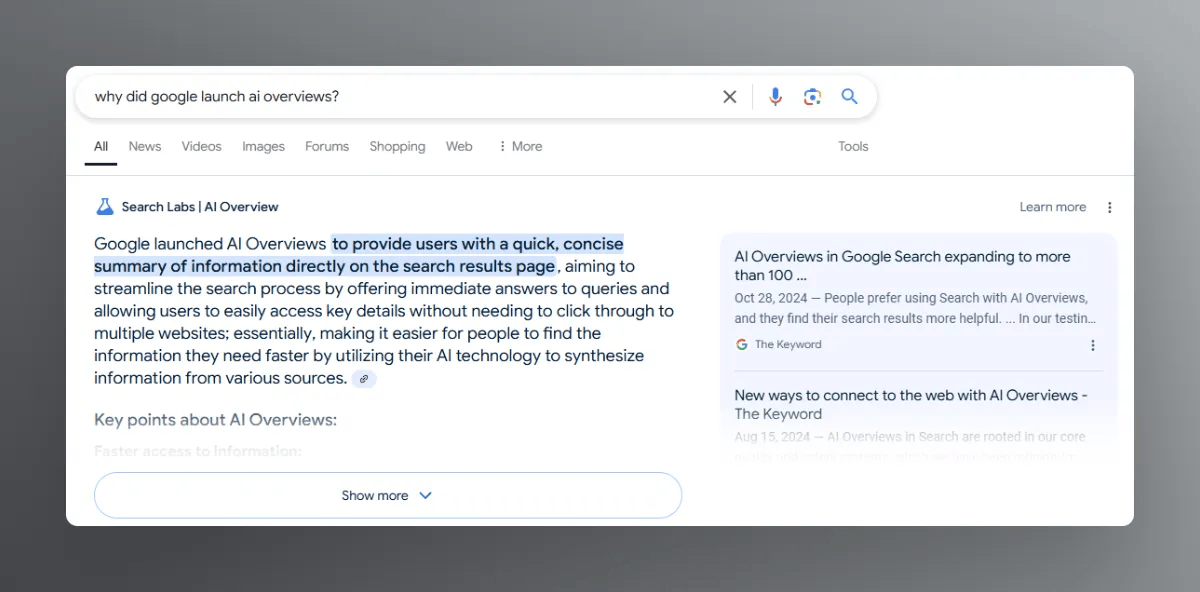 Image Credit: Kevin Indig
Image Credit: Kevin IndigWell, I couldn’t have been more wrong. My reasoning was that Google wouldn’t launch AI Snapshot, as they were called before the public release, since they’re too disruptive to their core advertising business model unless a competitor puts enough pressure on them.
That seems to have happened because AI Overviews launched in May 2024. You could argue I’m right because they launched with lots of flaws and caused Google another PR headache. But I’ll take an L on this one since there is no clear evidence.
👎🏻 More Creators Will Make A (Good) Living From Creating Content
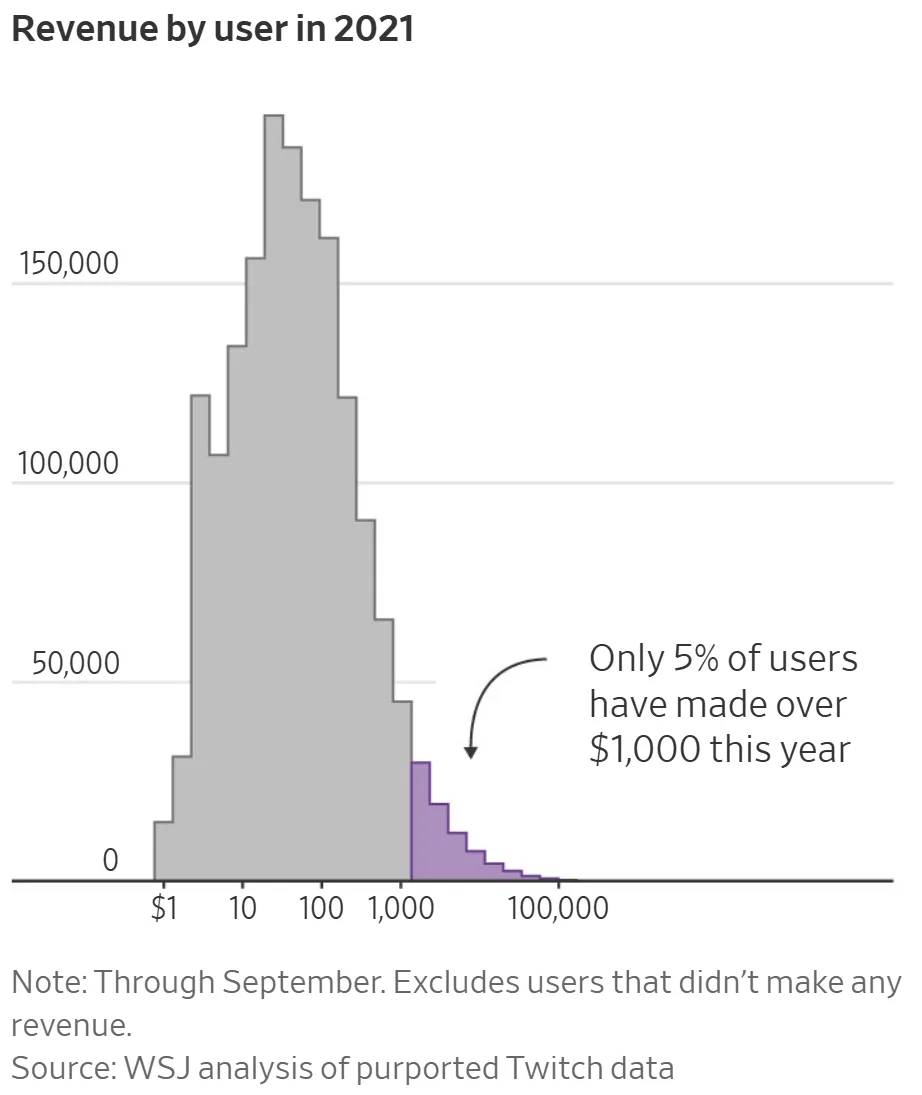 Image Credit: Kevin Indig
Image Credit: Kevin IndigI assumed more creators would make more money in 2024 as the field matures and more platforms share revenue. The opposite happened.
There are 27 million creators in the US, and 44% say creating is their full-time job.1 But the top 1% of creators make up over 50% of the revenue. 3% of YouTube creators get 85% of the views. The top 1% of podcasts get 99% of downloads.2
The inequality within the creator economy is staggering, and there is no improvement in sight.
2025 Predictions
Every year, I try to stretch my predictions to scratch the limits of what’s possible and underline my convictions. Anyone can state the obvious, but predicting something unobvious and being right is hard.
1. Agentic LLM Models Reach +100 Million Users
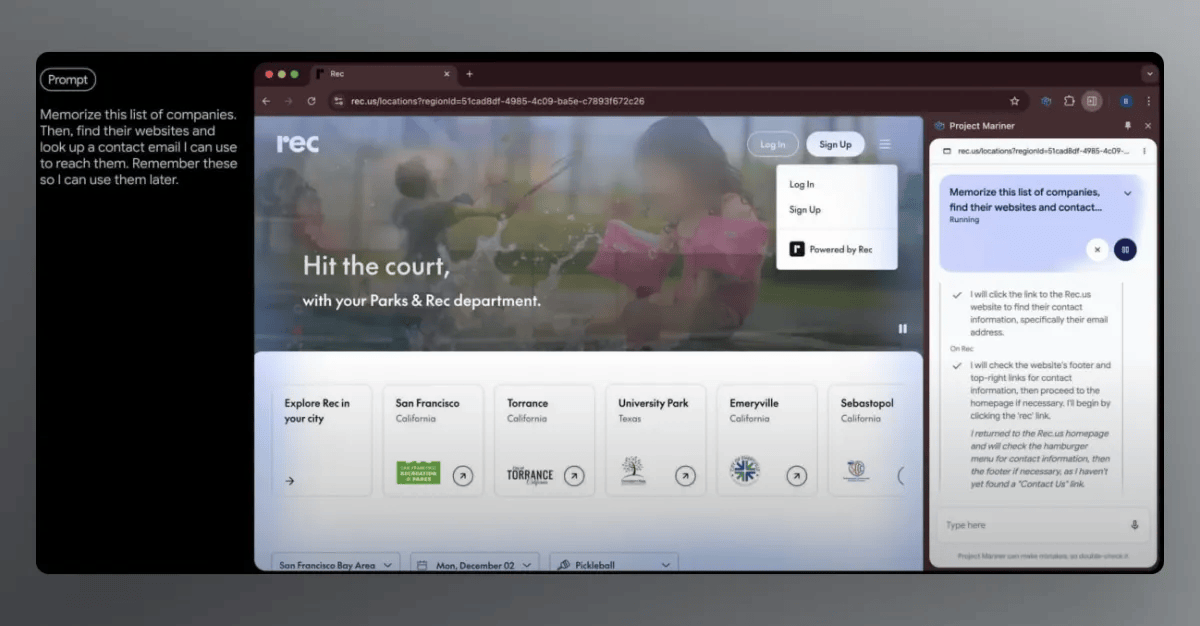 Image Credit: Kevin Indig
Image Credit: Kevin IndigWhat
- It’s no secret that inference models, which are better at reasoning, are the next frontier as the AI training data pool is drained. Better reasoning opens the door to AI agents and LLM scripts that perform actions for us, like buying a product or downloading a whitepaper.
- So far, agents like Shop Like a Pro or Google Mariner are still nascent and require a lot of oversight. But in 2025, I expect a breakthrough to drive adoption through the 100m user ceiling.
Why
- Agents are easier to monetize because they save users time in a much more tangible way than giving an answer. Doing over talking.
- The AI front runners also seem ready for prototypes, as we’ve seen at the hands of the agents that already launched.
- The monetary incentive is there: charging for time savings or cheaper products is pay-worthy value.
Implications:
- Marketers will have less control over the early stages of the user journey as consumers and B2B buyers explore LLM chatbots and agents. Clicks and search volumes for high-volume keywords will likely start shrinking in certain verticals.
2. More AI Victims
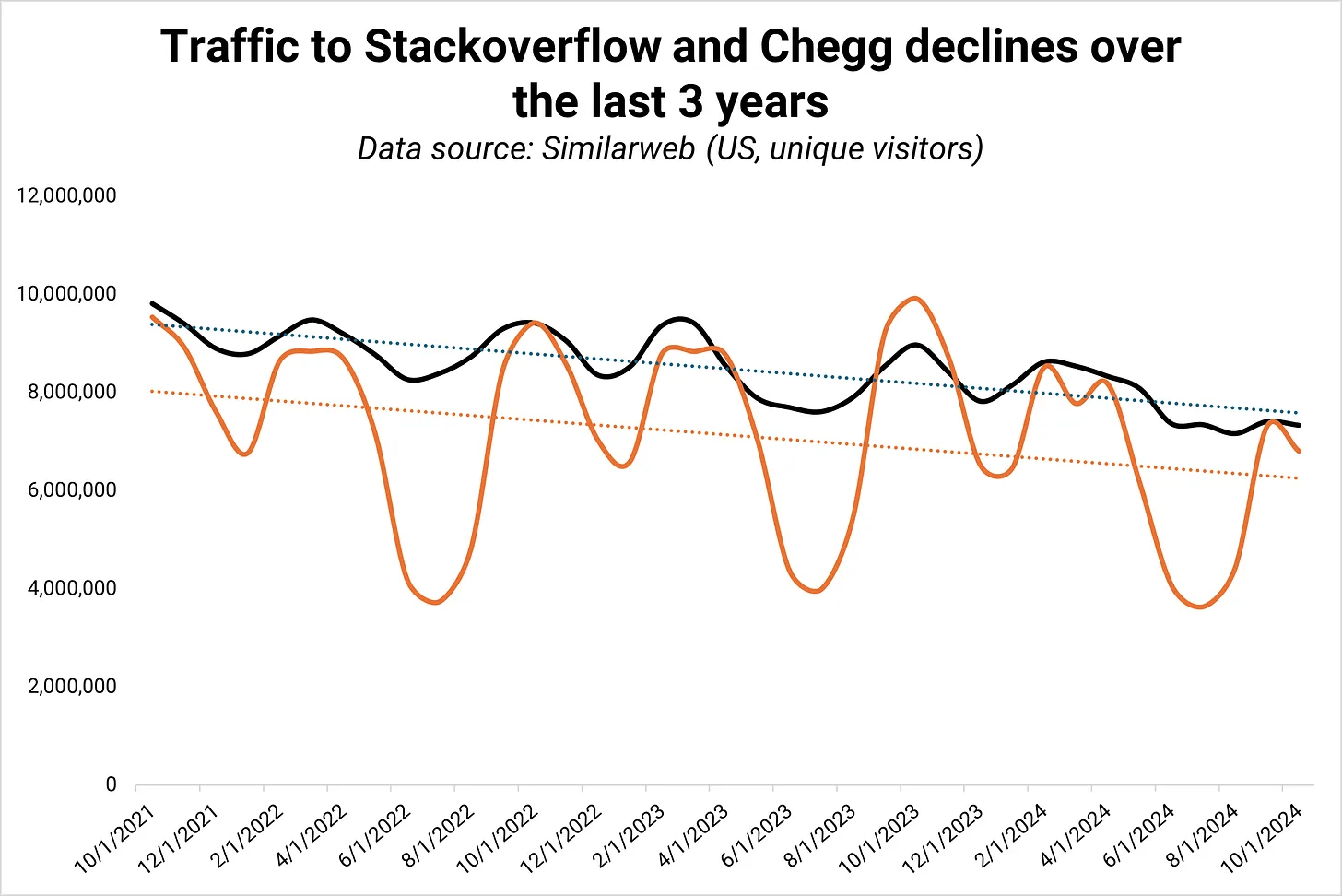 Image Credit: Kevin Indig
Image Credit: Kevin IndigWhat
- In 2025, I expect a lot more victims as AI destroys the margins of whole industries and leaves slow-moving companies behind.
- Some industries I believe to be in a tough spot: translation, dictionaries, tutoring, outsourced call centers.
- AI gives birth to new industries we cannot even imagine yet and might also revive some forgotten players like Oracle.
Why
- In 2024, we’ve seen the first AI victims: Chegg and Stackoverflow.
- New technologies always create winners and losers. The more powerful the technology, the bigger the shuffle.
Implications
- We’ll see more pivots as companies on the hot seat need to find other growth markets.
- We’re likely seeing layoffs, consolidation and acquisitions of companies with eroding margins.
3. AI Automation Becomes The Default For Marketing Teams
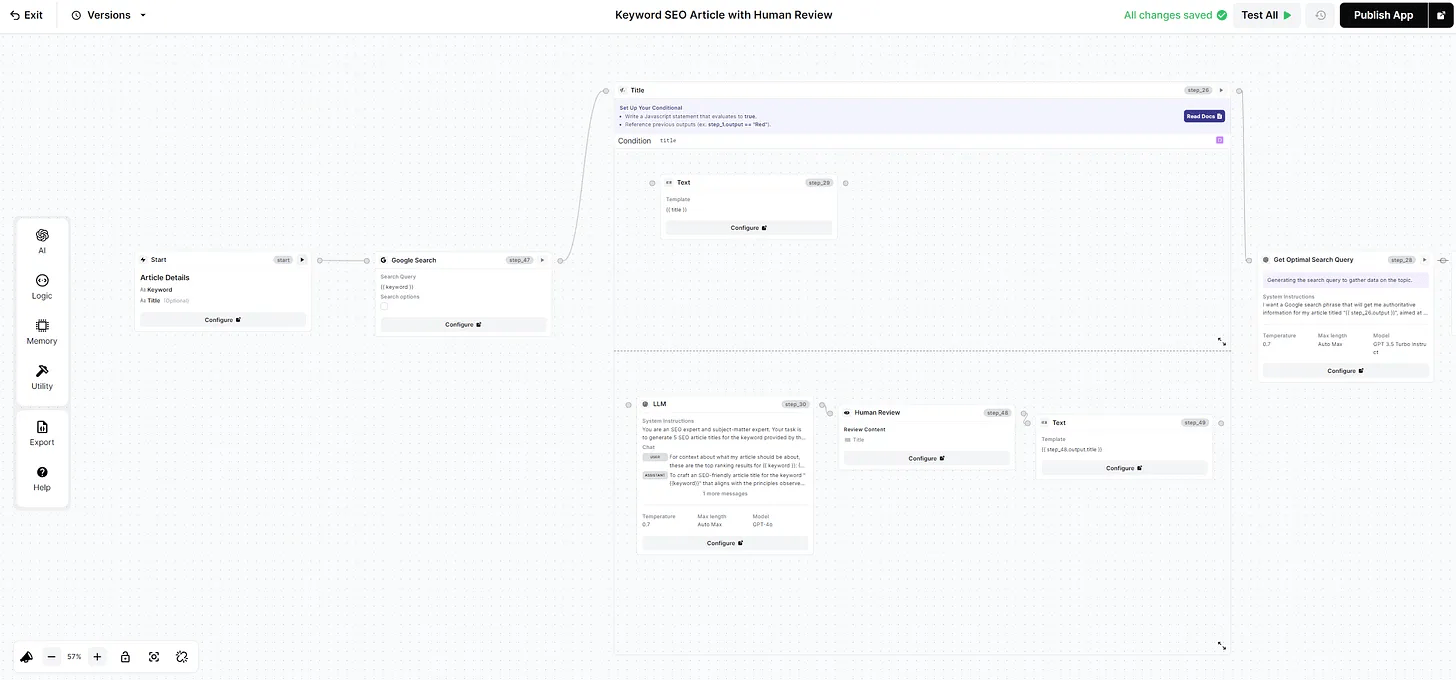 Screenshot: AirOps (Image Credit: Kevin Indig)
Screenshot: AirOps (Image Credit: Kevin Indig)What:
- One trend I’m very bullish on is system building, also called GTM Automation in the B2B world. The concept: AI and No-Code tools allow Marketers to chain and automate workflows instead of manually performing them.
Why:
- Already today, we can automate large parts of lead funnels, post-purchase onboarding and parts of SEO or advertising.
- In 2025, system building will become a necessity as marketing teams either stay small or become smaller due to budget constraints and economic uncertainty.
Implications:
- Smaller teams, freelancers and consultants become more powerful. The impact of a single marketer grows significantly if they’re skilled, but mediocre marketers might have to find another area of work.
- Marketers will start Agencies that set up automation systems for other companies.
4. AI Overviews Evolve
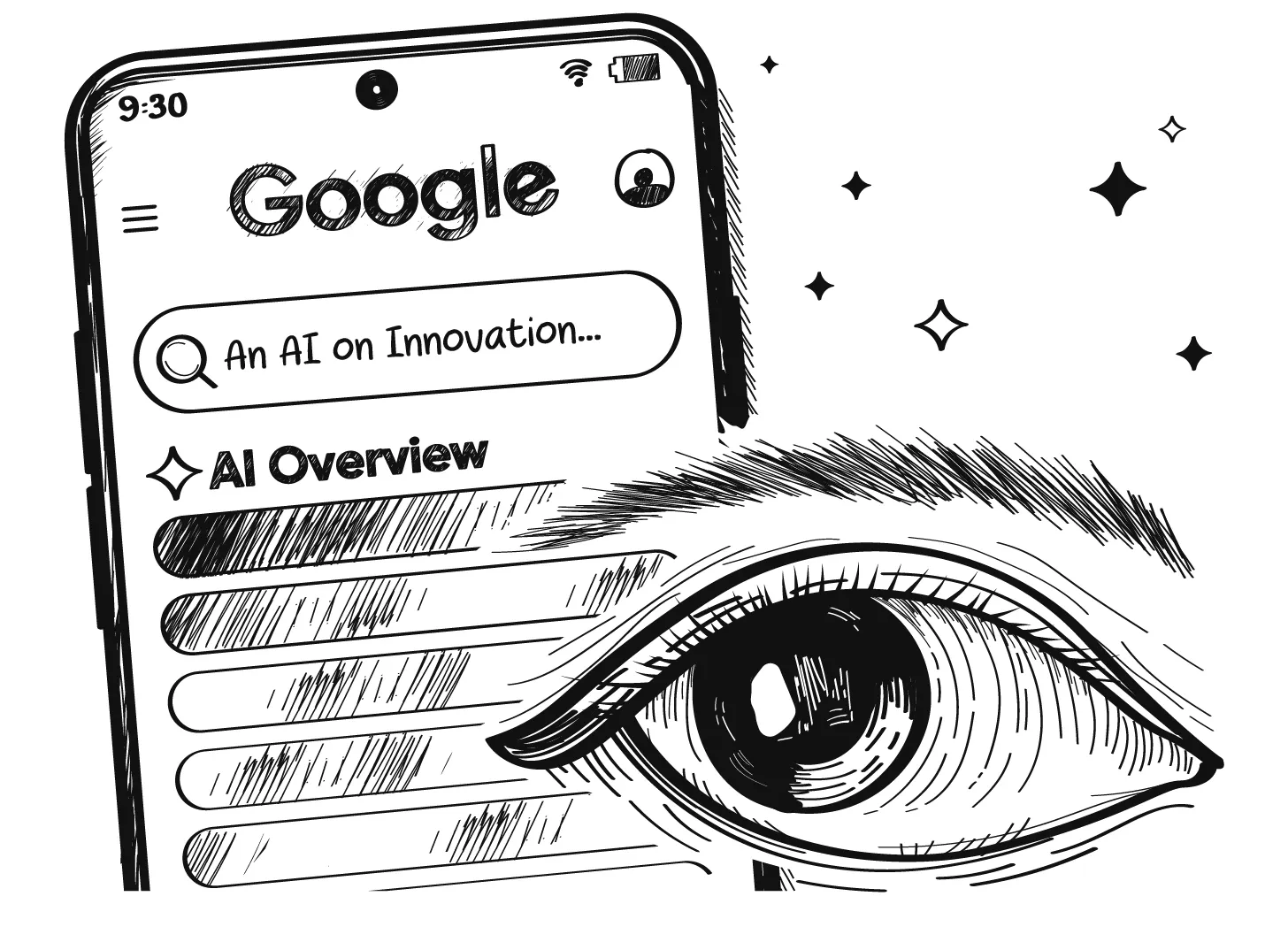 Image Credit: Lyna ™
Image Credit: Lyna ™What:
- Google’s AI Overviews will morph as the company iterates on the format.
- Some changes I could see: personalization based on your searches and favorite websites, video answers or a NotebookLM integration.
- I also think AIOs will show for +50% of queries.
Why:
- New models, especially multi-modal ones that can understand and answer with more than text, open the door to a better user experience, which could strengthen Google’s moat.
- Google has to find ways to defend itself from LLMs like Chat GPT or Perplexity, which are not under the same pressure to maintain margins and revenue growth rates.
Implications:
- SEOs need to continue tracking, experimenting with and adapting to changes in Google’s search landscape. Pressure on Google extends to SEOs.
- This is not a time of stability, as we have had more or less over the last two decades, but a time of agility, flexibility and adaptation.
5. Reddit Becomes Part Of The Default Channel Mix
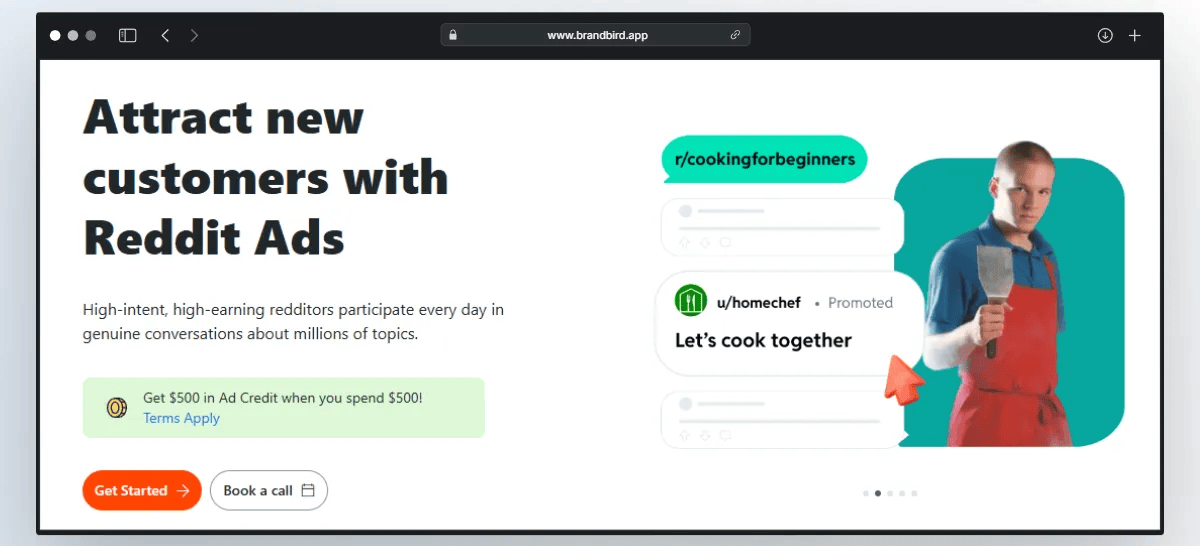 Image Credit: Kevin Indig
Image Credit: Kevin IndigWhat:
- Marketers will leverage Reddit much more for advertising and audience insights in 2025.
- Reddit’s advertising revenue will maintain its growth rate, and its stock price will keep climbing (no investing advice).
Why:
- The largest forum on the web is now one of the largest sites, as Google features it prominently for almost every query.
- Since threads are organized by topics instead of interests, Reddit can show ads based on what users discuss instead of their behavior.
- The company keeps expanding and improving its advertising stack, offering more and better targeting.
- Reddit uses AI to translate its US content into other languages to enter other markets. Together with Google’s ranking boost for forums, Reddit’s growth will continue.
Implications:
- Reddit grows as an intent-based alternative to Google. Markets will advertise on both platforms, but so far, only Google provided this type of performance ads.
- Reddit will also provide more valuable insights for marketers to help them understand their target audience better and create more valuable content.
6. More Sites Cloak For LLMs
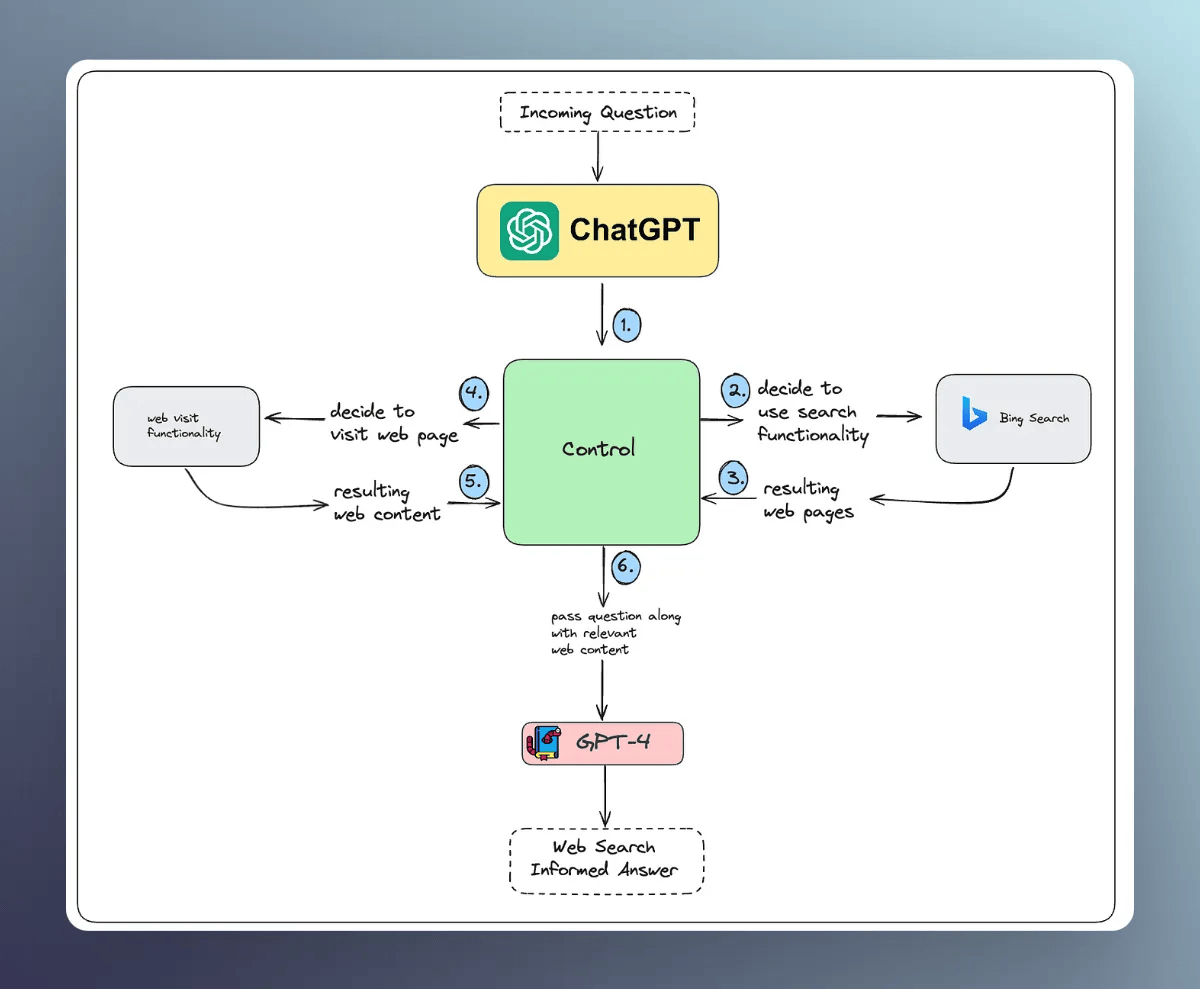 Image Credit: Kevin Indig
Image Credit: Kevin IndigWhat:
- In 2025, I expect a few prominent companies to create “bot-only” versions of their sites that are optimized for LLM crawlers.
Why:
- LLMs are hungry for fast sites with lots of structured content but they don’t penalize cloaking.
Implications:
- The web could become a better home for (good) bots as more users instruct LLMs to retrieve information or make purchases. Human activity could shrink and be replaced by bot activity. The question is whether this will lead to net-negative or positive open web activity.
7. The Current Google Shopping Tab Will Become The Default
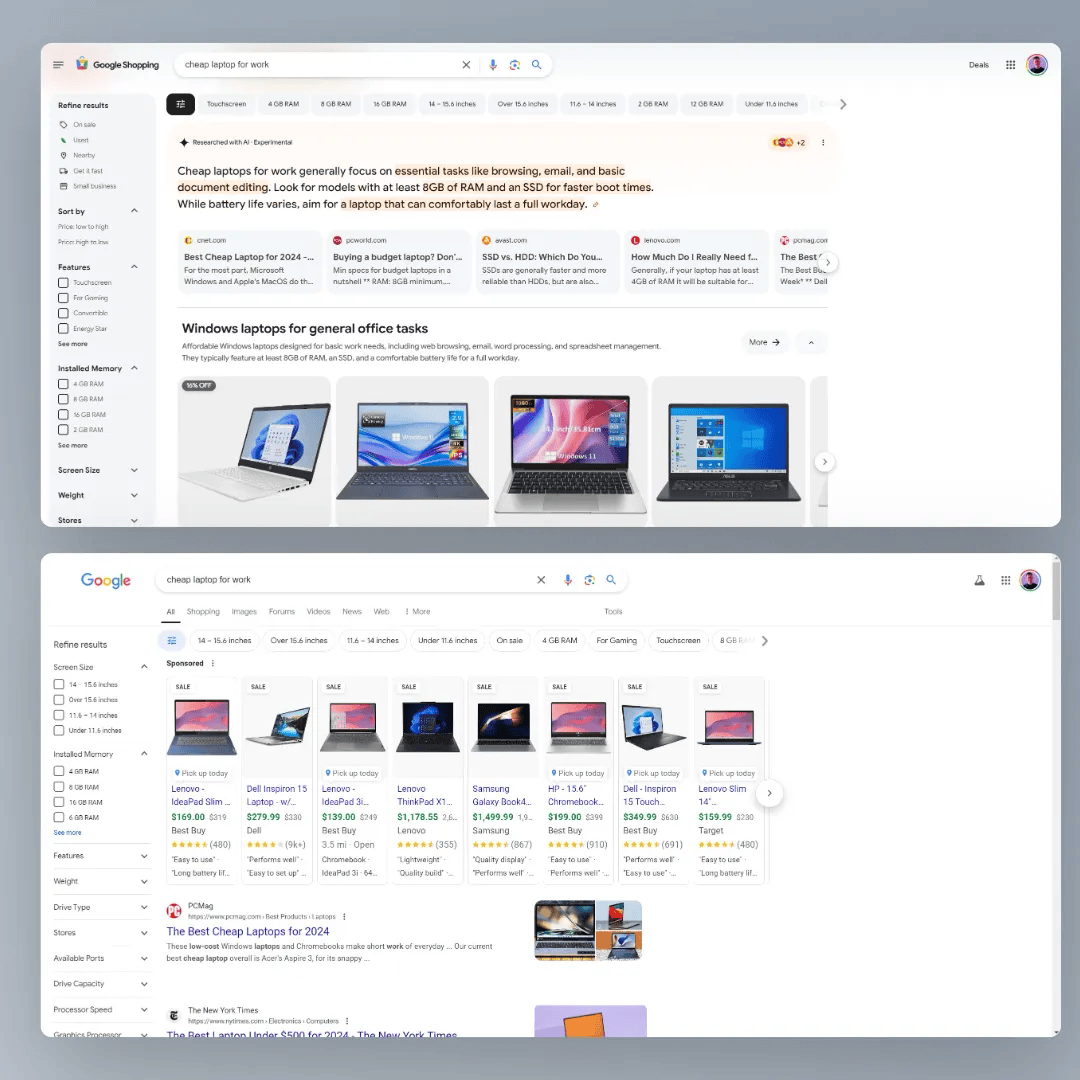 Image Credit: Kevin Indig
Image Credit: Kevin IndigWhat:
- The new, AI-personalized shopping experience behind Google’s shopping tab will become the default search experience in the main tab for shopping-related queries.
Why:
- Google often treats tabs as a beta environment for new experiences. In 2020, Google already made the shopping tab the default experience before.
- Google wants to break Amazon’s e-commerce dominance to unlock more revenue growth, especially as AI disrupts the classic search results.
Implications:
- Personalized results are harder to track. If the current shopping tab becomes the default, average search results might become even harder to track than they already are due to product grids. As a result, marketers need to optimize based on the little data Google still provides or lean on other ways to understand whether they optimize in the right direction or not.
8. AI-generated Audio And Video Hits Mass Adoption
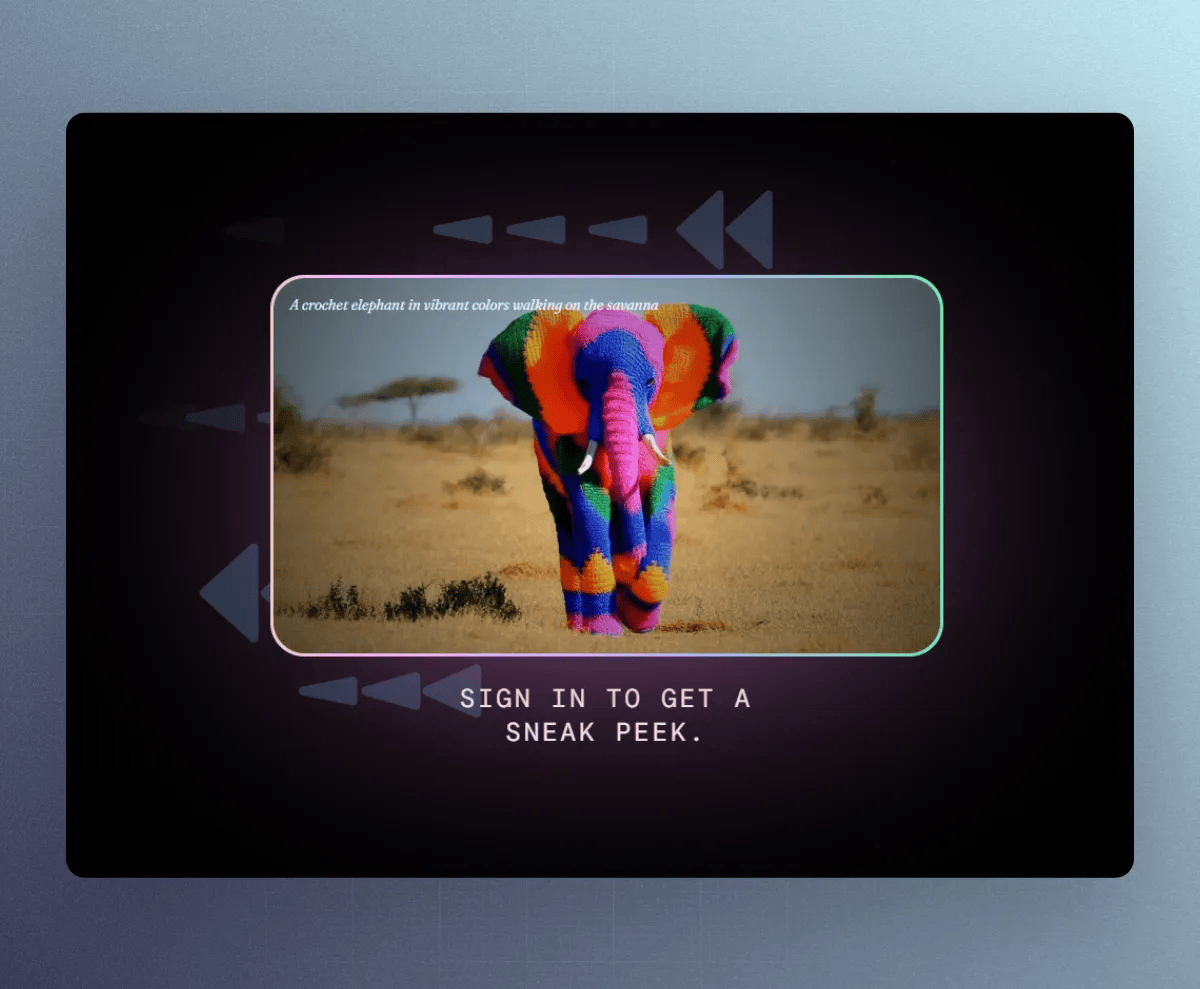 Image Credit: Kevin Indig
Image Credit: Kevin IndigWhat:
- We’ll see a lot more Youtube channels and podcasts use AI-generated b-roll and ads.
Why:
- The technology is getting there: Elevenlabs launched a new voice generator like NotebookLM and Google’s Veo 2, and OpenAI’s Sora should soon come off the waitlist.
- If the success of NotebookLM’s podcasting feature has shown us one thing, it’s that multi-modal AI output is getting ready for showtime.
Implications:
- Production cost of video and audio formats will sink dramatically.
- Deception and clickbait could reach new highs.
9. Google And Apple Divorce
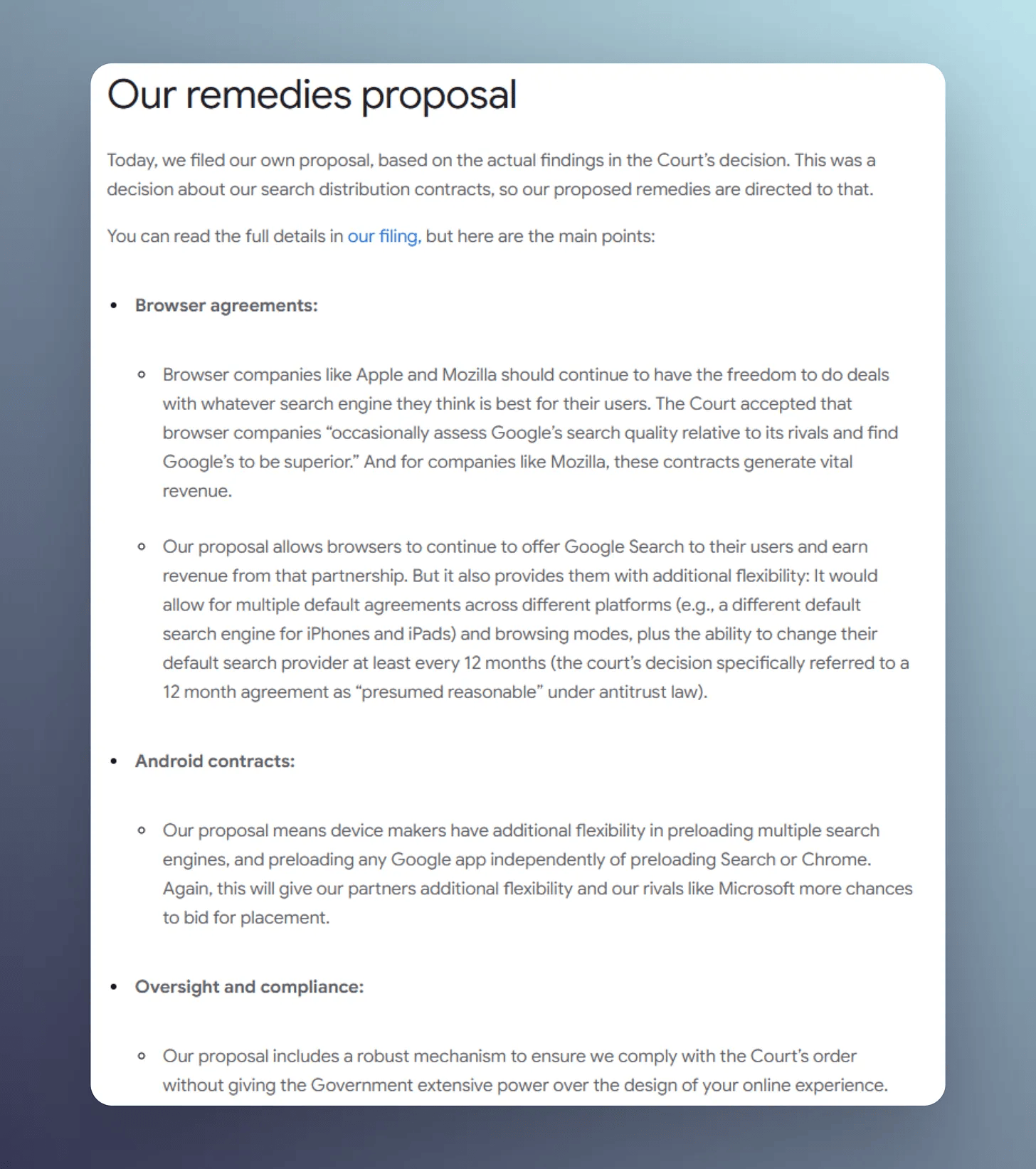 Image Credit: Kevin Indig
Image Credit: Kevin IndigWhat:
- Google ends exclusivity agreements with Apple, Samsung and other suppliers amid the DoJ antitrust lawsuit.
- Even though the DoJ asks for a lot more, like Google selling click & query data, the most realistic outcome is a settlement that breaks exclusive distribution.
Why:
- Google itself suggested loosening its agreements (source) in an attempt to mitigate possible remedies.
- The DoJ antitrust lawsuit initially focused on those agreements. The ruling judge (Mehta) made it very clear in his memo that he’s not a fan.
Implications:
- Google won the search game, so I don’t expect remedies to change that. Instead, any remedies will impact Google’s position in the AI game.
- Losing exclusive distribution agreements could mean that Google has to fight for its position instead of winning by default on over half the market.
10. Apple Or OpenAI Announce Smart Glasses
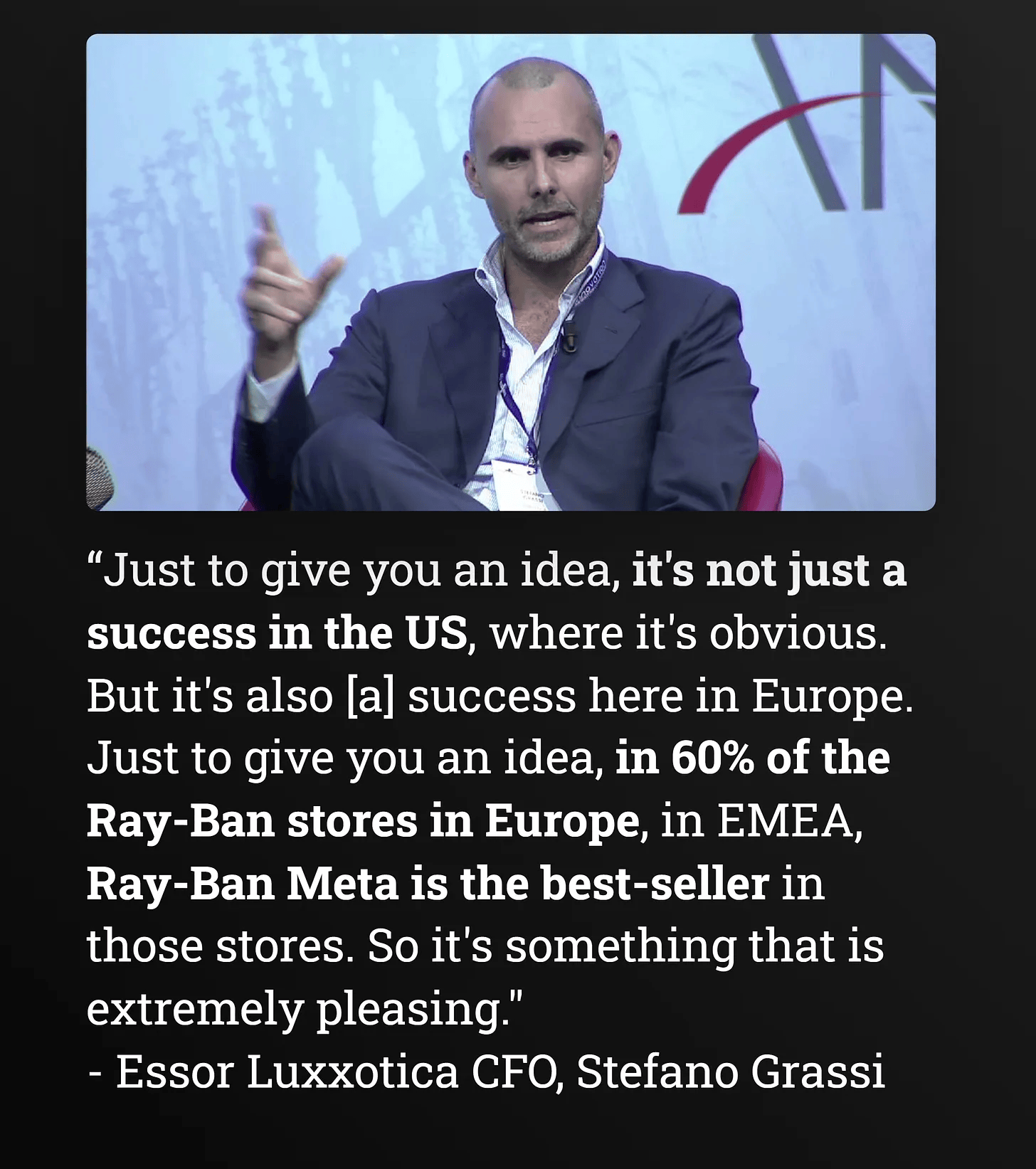 Image Credit: Kevin Indig
Image Credit: Kevin IndigWhat:
- Apple or OpenAI will join the smart glasses market with a device announcement to compete with Meta.
- I lean more towards OpenAI since Apple already has a secondary device with its watches, and OpenAI has officially started to work with Jony Ive, the designer of the iPhone.
Why:
- Meta seems to be running away with smart glasses. Meta Ray Bans make up 60% of purchases in Ray Ban stores.
- The smart glasses market is on track to hit $4 billion by 2030, offering a billion-dollar opportunity for the winner.3
Implications:
- Owning a successful hardware device with mass adoption could be a valuable defense to OpenAI or another fruitful business to Apple.
- For marketers, the implications could be a change in consumer behavior, like more live streams, or new content formats, like smart glasses answers. However, adoption is still so far out, and the implications are so unclear that it’s hard to predict where things are going.
Where do you dis/agree?
